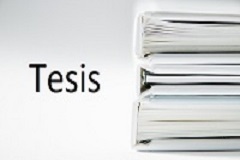Thinking science is the solution. Didactic guide for the completion of the final project of the Diploma in Public Administration
Abstract
The work deals with the use of a didactic resource so that the student in a very short time has a resource as a reference to guide them in the realization of the final work, guaranteeing the support of the same with scientific, technical and methodological rigor, and at the same time. time they acquire knowledge about the organization for the solution of a problem from a scientific perspective, using the resources that allow to concretize science in practice, hence the question is how to think about science in such a short time and foster the habit of research? Faced with this challenge, the idea was to develop a didactic guide and validate its effectiveness. The result has been highly satisfactory, both in practice and from a theoretical point of view. Since its practical, scientific and methodological value is recognized, particularly by the participants in the different editions of the aforementioned diploma course, which in all cases serves as validation.JEL Code: I23 Education. Higher education and research centers
References
Material Digital de la Escuela Superior de Cuadros del Estado y del Gobierno.
Roja Soriano, Raúl, Métodos para la Investigación Social. Una proposición Dialéctica, junio 2012.

Downloads
Published
How to Cite
Issue
Section
License
Copyright (c) 2018 Wilfredo García Errasti, Mileydy Marchán Peña

This work is licensed under a Creative Commons Attribution-NonCommercial-NoDerivatives 4.0 International License.
- Sending a contribution to the Cuban Magazine of Finance and Prices (RCFP) implies a non-exclusive assignment of rights, which includes: Reproduce the Article in whole or in part and communicate the Article to the public in print or electronic format, combined or not with the works of third parties, such as by making the Article available to the public via the Internet or any other network, as part of a database, with on-line or off-line access, for use by third parties; Translate the Article into other languages and release the translation to the public; Create adaptations, summaries, or excerpts of the Article and other derivative works thereof, and exercise all of your rights in such adaptations, summaries, excerpts, and derivative works; Include the Article, either in its translated, adapted or summarized version, totally or partially, in a computerized database and make it available to third parties; Include the Article, totally or partially, either in its translated, adapted or summarized version, in a selection or compilation of texts; Rent or lend the Item to third parties; Reproduce the Article by means of reprography, without prejudice to legal limitations.
The Author of articles published in the Cuban Magazine of Finance and Prices (RCFP) may exercise the following rights:
- Reproduce the Article, totally or partially, and disseminate its content or make it available to the public, in printed or electronic format, as part of a teaching content or as a compilation, for use in the academic or research field in the institution to the one to which the Author belongs or in those institutions to which he belongs.
- Publish the Article on the Internet or authorize the Author's institution (or any other appropriate organization) to do the same, immediately from the date of publication of the Article in the journal: within the institution's closed network (p. eg, the intranet); or in publicly accessible institutional repositories or centrally organized repositories, provided that a link to the Article is included on the journal's website.
- Grant to the Author's own institution (or any other appropriate organization) the authorization to reproduce the Article in order to prevent its deterioration or, if the original is in an obsolete format or the technology to use it is not available, in order to ensure that the Article remains available for teaching or research purposes;
- Present the Article at a meeting or conference, and distribute copies of the Article to those attending the event.
- Grant end users at the Author's own institution (or any other appropriate organization) permission to copy, use, transmit, and publicly perform the work and to create and distribute derivative works.



